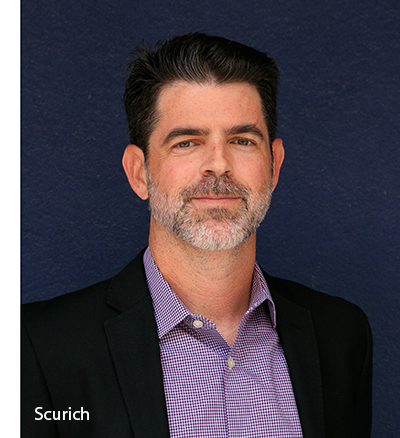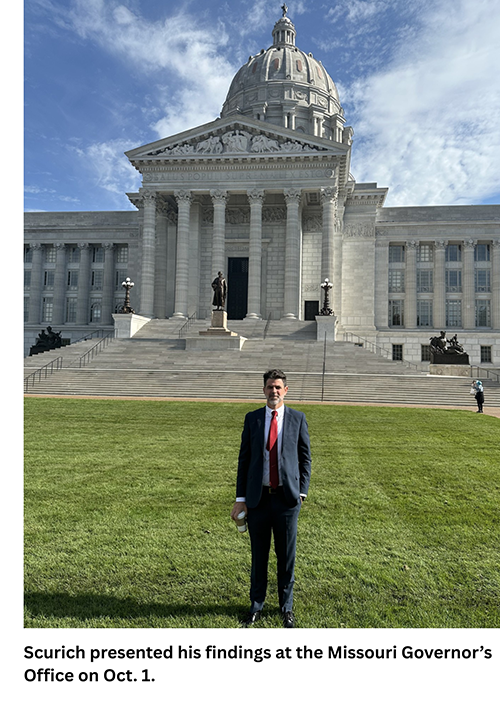
Survey reveals residents favor commuting death sentence to life imprisonment
A new public opinion survey of Missouri registered voters reveals overwhelming and bipartisan support for granting executive clemency to Lance Shockley, who is scheduled to be executed this month for the 2005 murder of Missouri Highway Patrol Sgt. Carl DeWayne Graham, Jr.
 The study, conducted by Nicholas Scurich, professor and chair of psychology at the University of California, Irvine, found that 65 percent of Missouri voters believe the governor should commute Shockley's death sentence to life imprisonment without the possibility of parole. An additional 15 percent remain undecided and are seeking more information, while only 19 percent oppose clemency outright.
The study, conducted by Nicholas Scurich, professor and chair of psychology at the University of California, Irvine, found that 65 percent of Missouri voters believe the governor should commute Shockley's death sentence to life imprisonment without the possibility of parole. An additional 15 percent remain undecided and are seeking more information, while only 19 percent oppose clemency outright.
Since public opinion is often distanced from policy, it is worth noting that Scurich this week presented his findings at the Governor’s office in Missouri to help inform his decision on clemency. Gov. Mike Kehoe has the authority to grant reprieves, commutations and pardons, after conviction, for all offenses except treason and cases of impeachment.
Scurich's survey of 440 participants, weighted to represent Missouri's registered voter demographics, revealed that support for clemency transcends traditional political divisions:
- 79% of Democrats support clemency
- 67% of Independents support clemency
- 53% of Republicans support clemency
“This is not a partisan issue,” Scurich said. “The data show strong support for clemency across all political affiliations, indicating broad public concern about the evidence and process in this case.”
Remarkably, the survey found that even many supporters of capital punishment favor clemency in Shockley's case:
- 63% of those who somewhat support the death penalty believe clemency should be granted
- 23% of strong death penalty supporters favor clemency, with many others expressing uncertainty
 Participants who supported clemency cited several primary concerns:
Participants who supported clemency cited several primary concerns:
- Doubts about evidence strength: Many questioned the reliability of circumstantial evidence and inconclusive ballistics testimony
- Procedural concerns: Widespread objection to the judge imposing the death penalty despite the jury's failure to reach unanimous agreement on sentencing
- Rehabilitation evidence: Recognition of Shockley's positive conduct in prison, including saving another inmate's life and maintaining good behavior
One survey participant noted: “The evidence seems merely circumstantial. I didn't see anything incontrovertible proving his guilt, which should be the bar for the death penalty.”
Another expressed concern about the judicial process: “As the jury could not reach a unanimous decision and could not agree on a sentence, the judge was overstepping to sentence him to death.”
Support for clemency spans religious affiliations:
- 72% of non-religious participants support clemency
- 69% of Catholics support clemency
- 64% of Evangelical Christians support clemency
- 66% of Mainline Protestants support clemency
Shockley was convicted of first-degree murder in the 2005 shooting death of Sgt. Graham, who was investigating a fatal car crash involving Shockley. The case relied heavily on circumstantial evidence, including ballistics testimony that experts later called “inconclusive.”
In 2009, a jury found Shockley guilty of first-degree murder. But, in the punishment phase of his trial, the jury failed to reach a unanimous decision on whether he should be executed.
Despite the jury's inability to unanimously agree on sentencing, the judge imposed the death penalty.
Missouri and Indiana are the only two states in which judges can unilaterally impose the death penalty when a jury can’t agree on whether the defendant should be sentenced to death. In most other states, a deadlocked jury results in a sentence of life without parole.
Since his incarceration, Shockley has maintained his innocence while demonstrating significant rehabilitation, including developing a strong faith relationship, maintaining exemplary behavior, and once intervening to save another inmate's life, according to news reports.
“Missourians may disagree about the death penalty in general, but in this case, the will of the people is clear: a strong majority support clemency,” Scurich said.
— Mimi Ko Cruz